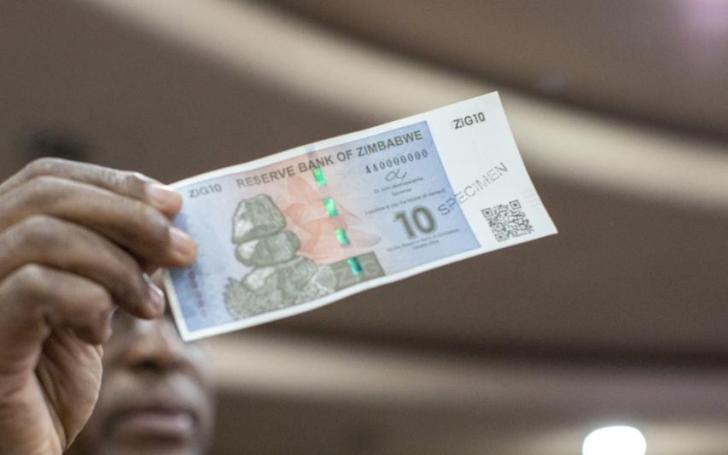News / National
Zimbabweans complain over ZiG cash shortage
24 May 2024 at 07:35hrs |
1 Views

Business operators and residents in Gweru are expressing concerns about the scarcity of the new currency, Zimbabwe Gold (ZiG), and are urging the Reserve Bank of Zimbabwe (RBZ) to increase the availability of notes and coins to facilitate smoother transactions.
Introduced by the Central Bank a month ago to replace the Zimbabwe dollar, which had depreciated to about $33,000/US$1 on the interbank market, the ZiG is structured to be backed by gold, other precious minerals, and foreign currency reserves.
While the release of ZiG coins and notes was initially welcomed by the public, the currency is now notably scarce. Most transactions involving ZiG are conducted through electronic means such as swiping, bank transfers, or mobile money, as physical cash remains in short supply. This shortage particularly impacts small registered businesses without swipe machines and informal traders who rely on cash transactions.
Despite the enthusiasm shown by consumers for the new currency, many are yet to handle or see ZiG notes. Some residents report receiving change in foreign currencies such as the rand or US dollar instead of ZiG when making transactions. Others, especially those conducting electronic transactions at large supermarkets and the Gweru City Council, find it convenient to use digital payment methods and do not require physical cash.
Economic analysts echo these concerns, emphasizing the need for the RBZ to inject more ZiG notes and coins into circulation. The shortage of smaller denominations of ZiG currency leads to challenges in providing change, forcing consumers to make unnecessary purchases or accept alternative forms of currency as change. Public transport operators are also affected, resorting to measures like introducing coupons to address the scarcity of ZiG for change.
Addressing the shortage of ZiG currency is crucial to ensure smoother transactions and mitigate disruptions in economic activities in Gweru and beyond.
Introduced by the Central Bank a month ago to replace the Zimbabwe dollar, which had depreciated to about $33,000/US$1 on the interbank market, the ZiG is structured to be backed by gold, other precious minerals, and foreign currency reserves.
While the release of ZiG coins and notes was initially welcomed by the public, the currency is now notably scarce. Most transactions involving ZiG are conducted through electronic means such as swiping, bank transfers, or mobile money, as physical cash remains in short supply. This shortage particularly impacts small registered businesses without swipe machines and informal traders who rely on cash transactions.
Despite the enthusiasm shown by consumers for the new currency, many are yet to handle or see ZiG notes. Some residents report receiving change in foreign currencies such as the rand or US dollar instead of ZiG when making transactions. Others, especially those conducting electronic transactions at large supermarkets and the Gweru City Council, find it convenient to use digital payment methods and do not require physical cash.
Economic analysts echo these concerns, emphasizing the need for the RBZ to inject more ZiG notes and coins into circulation. The shortage of smaller denominations of ZiG currency leads to challenges in providing change, forcing consumers to make unnecessary purchases or accept alternative forms of currency as change. Public transport operators are also affected, resorting to measures like introducing coupons to address the scarcity of ZiG for change.
Addressing the shortage of ZiG currency is crucial to ensure smoother transactions and mitigate disruptions in economic activities in Gweru and beyond.
Source - the chronicle
Join the discussion
Loading comments…






























